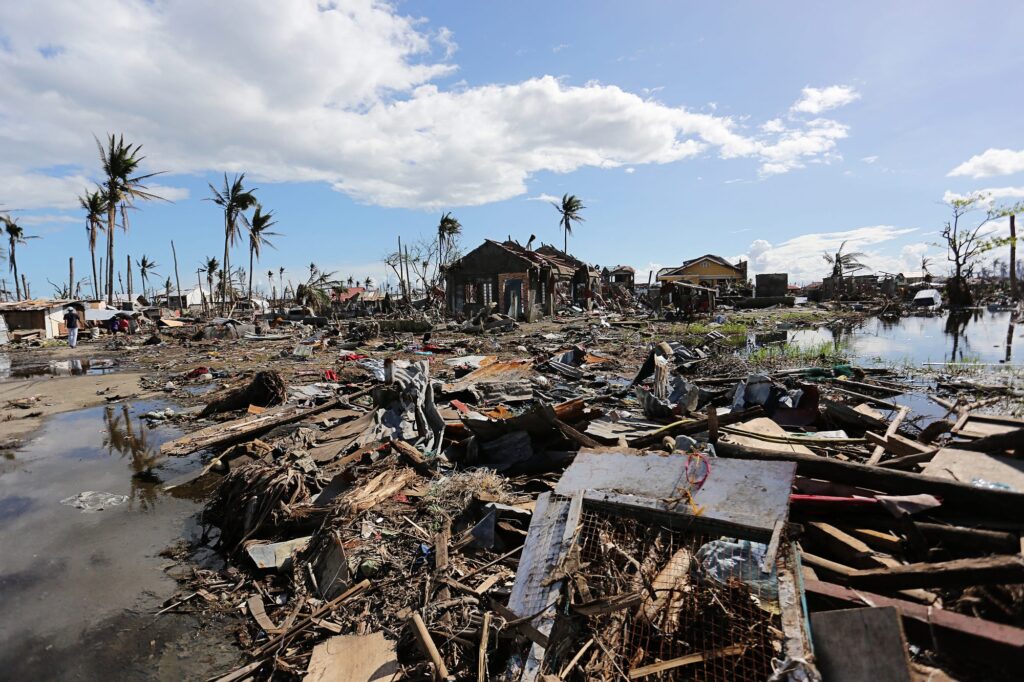Whether as a policyholder or working on behalf of a carrier, everyone who has ever been involved in an insurance claim will be familiar with the concept of First Notification of Loss, typically abbreviated to the acronym FNOL.
It is well-documented that FNOL marks the beginning of every claims process, where a policyholder must directly contact their insurance provider to inform them that their insured property has been impacted.
As this is the entrenched method of opening a claim, this means that the insurance industry is inherently reactive, therefore making it difficult to predict exactly when a claim will come in, where it will come from, and what it will be for.
Whilst the insurance industry has always operated in this way, the knock-on effects of this, notably when it comes to responding to events like natural catastrophes, are clearly having a major impact on customer satisfaction and retention, which is detrimental to insurers’ bottom-lines.
In a time where insurance providers are finding it unfeasible to offer coverage of vulnerable areas because they cannot justify the cost, this is an issue that not only needs to be addressed, but also requires a suitable alternative that ensures the long-term protection of both policyholders and providers.
The drawbacks of FNOL
How insurers help affected policyholders in the immediate aftermath of a natural catastrophe is often defined by how quickly they can secure resources amidst considerable confusion and uncertainty about what is happening on the ground. This is undoubtedly exacerbated by the FNOL process, where the onus is put on the policyholders to manually provide insurers with notice of an impacted property and the level of damage.
The fundamental problem here is that the policyholders are not the experts in this scenario, creating the opportunity for mistakes in their claims. This is understandable though, as they are seeking what they are due in a time of crisis, where they are reliant on how fast an insurer can react and respond, so their focus will always be on filing a claim quickly rather than striving for maximum accuracy.
Typically, the average time between a property being affected and a claim being filed is 2.3 days, plus an additional 3-5 days until an insurer sends an adjuster out to make their assessments, which already means policyholders will have to wait at least a week until receiving any form of payment.
However, for events like hurricanes or earthquakes, where there is severe damage across a large area and many affected policyholders, response times are always increased, meaning it could be 2 weeks or longer before claims are processed.
When considering how policyholders could potentially be impacted by such devastating events, it comes as no surprise that the National Association of Insurance Commissioners shared that the number one complaint they receive is delayed claims payments.
At a time when people are most in need, sometimes without even a roof over their heads, they simply cannot afford to go through the rigmarole of lengthy, manual FNOL and claims processes to get the money they require to secure shelter and other essential resources.
Clearly, this is the genesis of dwindling customer satisfaction and retention, where bad FNOL processes have consistently proven to be a major factor in people switching their insurance provider. There is also a growing perception that FNOL’s purpose is effectively to be a customer service centre, rather than fulfilling its true function as a way to settle claims.
Affected policyholders are simply not interested in good customer service when filing a claim, they are far more concerned with having their claims settled and receiving the economic relief they desperately need.
It is estimated that 60% of manual FNOL entries have mistakes, and mistakes are costly. Manual data collection processes can cost insurers millions, where incomplete data and slow processing have a major impact on the time it takes to settle claims.
This is especially important given that Deloitte shared that claims processing expenses already account for around 70% of US premiums, so not only are the overheads already high, but there’s also massive potential for bottom-lines to be affected if customers are left dissatisfied and switch providers.
As the claims process is usually the only touchpoint for customers interacting with their insurance providers, it is vital that they are handled well, otherwise there will be little chance of retaining business or gaining new customers. This is proven by the fact that a Deloitte Personal Lines Consumer survey found that 44% of US respondents conduct research into what it’s like to make a claim with providers before purchasing coverage, so evidence of an effective, efficient claims process is essential.
FNOI: a proactive alternative
To help alleviate this industry-wide problem that is impacting both policyholders and providers, a commitment to a proactive approach to event response is imperative.
With this in mind, we would like to officially introduce a concept that has consistently enabled insurers to respond to major global catastrophes with greater speed and accuracy than ever before: First Notification of Incident.
Following industry tradition, this has, of course, been abbreviated to FNOI, but what does it mean?
FNOI means that when an event has taken place, insurers are immediately made aware of what has happened, where it has happened and therefore, what claims they can expect to be filed in the coming days.
This then allows insurers to get ahead of the potential impact on their portfolios, where MIS alert clients of any affected areas, the probable severity of damage, and its proximate cause. In doing this, insurers can have adjusters equipped with accurate information and ready to make assessments, whilst confidently estimating how much they’re likely to pay in claims settlements, which greatly improves their ability to accurately reserve the necessary resources to respond.
So rather than waiting on an affected policyholder to perform assessments of their own properties and manually file a claim through the FNOL process, by adopting the FNOI approach, insurers can proactively communicate with their customers, letting them know that they’re aware of how their property has been impacted and once they confirm this is the case, adjusters will be sent out and claims can quickly be settled.
How FNOI works
What makes FNOI possible is the unmatched breadth of trusted global data sources harnessed by the MIS team, where this multi-peril, multi-region coverage provides maximum oversight of ongoing events happening all over the world.
By combining this comprehensive approach with client’s exposure data, MIS, through the award-winning disaster response platform GEO, provide immediate actionable insights following an event, where insurers can understand the impact at a portfolio, policy, and property-level view, allowing them to confidently make calls on claims in hours rather than days.
A perfect example of the benefits of FNOI can be found in MIS’ response to the deadly magnitude 7.8 earthquake which struck Türkiye and Syria in February 2023. Within 12 hours, GEO had already provided clients with a detailed heatmap of affected areas, pinpointing insured buildings and determining which of their customers had been impacted and the likely extent of the damage to insured property.
Ultimately, this enabled these insurers to quickly secure local resources, prepare their local claims team to respond and make payments to affected policyholders on the same day, providing immediate relief following a truly devastating event whilst there was still significant confusion about what was happening on the ground.
If the insurance industry is to truly improve the claims process, ensuring they can rapidly and reliably provide affected policyholders with the resources they need in times of crisis, and in turn protect their bottom-lines, the first step should be moving away from their traditional reliance on FNOL and switching their focus to FNOI as the best way to enable an effective, efficient event response.

About the author: Daniel Grimwood-Bird, Head of Sales & Marketing at MIS, is an experienced Client Development & Business Development Director, with a proven track record in selling complex solutions to financial institutions, telecoms, and insurers. He also has a history of leading EMEA Business Development and managing Tier 1 insurer relationships for SaaS startups and scale-ups, and excels in driving growth and building strategic partnerships in competitive markets.









